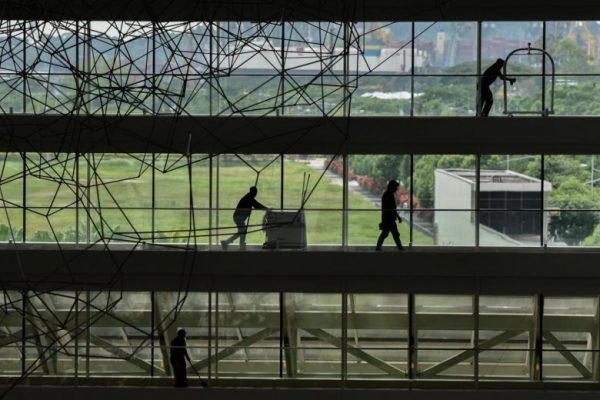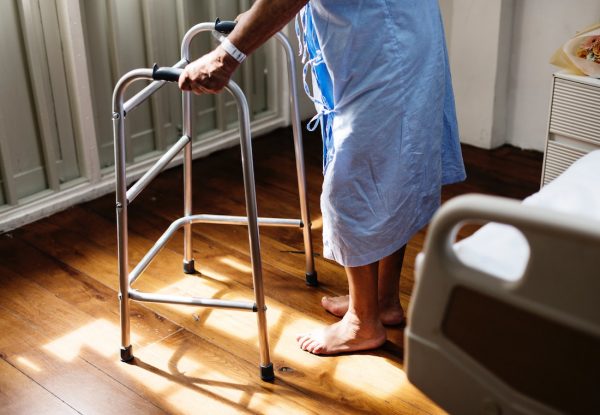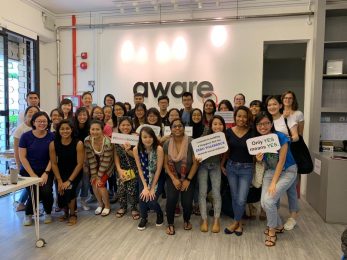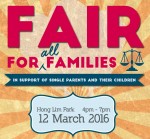 By Vivienne Wee, Research & Advocacy Director, and Jolene Tan, Programmes and Communications Senior Manager, AWARE
By Vivienne Wee, Research & Advocacy Director, and Jolene Tan, Programmes and Communications Senior Manager, AWARE
Poverty and housing have recently come into focus in the news. The Fresh Start Housing Scheme, touted as addressing housing affordability, is intended to help former flat owners living in public rental flats transition back to HDB ownership. Beneficiaries are to obtain grants, concessionary loans and shorter leases – but only if they meet conditions such as continuous employment and regular school attendance.
We commend this concern for the housing security of low-income families, many of whom comprise single parents (including predominantly divorced mothers) and their children. Our work and interviews with single mothers, however, point us toward certain gaps in the thinking and design of the Scheme. We have raised these concerns in a letter to the Prime Minister as well as Ministers Khaw Boon Wan, Lawrence Wong and Tan Chuan-Jin. Here is a summary of our key points.
Is flat purchase really the priority?
Following divorce, for many single mothers, impoverishment and homelessness are pressing threats – but they need immediate access to rental housing, not eventual access to housing ownership.
Many women drop out of the workforce during marriage or after childbirth to care for their families – with 273,300 women citing “family responsibilities” as the main reason for being outside the labour force, compared to 12,200 men (MOM statistics). On divorce, they are financially vulnerable, without savings or CPF of their own, and with no access to an equitable share of their spouse’s CPF.
This situation is often exacerbated by the sale of the matrimonial home, whether by court order or because the single mother cannot meet mortgage payments after taking over her former spouse’s share of the home. At this point, obtaining an interim rental flat or rental flat from HDB can be extremely difficult. Single mothers’ applications to rent are often denied because of:
- Profits from the sale of the matrimonial flat – though much of this is eaten up by the mortgage, legal fees and other divorce-related debt
30-month debarment after the sale of the flat
- They exceed the ceiling for monthly income for rental flats ($800 for one-room, $1,500 for two-room).
- Other family members are assumed to be able to provide temporary housing.
- One single mother said she was regarded by HDB as “too well-off to qualify for a rental flat, but too poor to buy a flat.” Many are forced to rent in the open market, depleting what assets or savings they have left. By the time the 30-month debarment period is over, even if they did not start out poor, they have become poor. It is thus rental access rather than home ownership which needs attention.
More fundamentally, we question whether flat ownership is enough to help families escape poverty. Are they truly financially better off in the long term for owning a flat? Should we instead consider improving access and conditions of low-cost rental housing for people with limited or unstable income?
Eligibility conditions – punishing poor families for circumstance?
Assistance under Fresh Start is to be conditional on continuous employment and regular school attendance. Minister Lawrence Wong wrote that families need to “show the commitment to put their lives and finances in order”. Yet poverty itself often leads to gaps in employment and schooling. Rather than punishing families for this circumstance by withdrawing assistance, it would be more productive to understand the root causes of these problems to design solutions.
Continuous employment is especially hard for single mothers to achieve. Once again, women are penalised for leaving employment for family care. Years of caregiving are not counted as work experience by prospective employers. One single mother reported: “people do not even want to hire single parents…. I was turned down many times when they heard I have kids and was not working for 10 years.” This situation is even more difficult for those women who have never been employed. Some in Interim Rental Housing (IRH) are also deterred from working, because they are required to share the flat with co-tenants with whom they are not familiar or comfortable. As a result, they are not confident about the safety of their children if they are not at home to supervise.
Caregiving was also a particular issue for the many mothers of disabled children that we interviewed. Their children were unable to attend regular school, and it was difficult for their mothers to find appropriate educational institutions. It was therefore not feasible for them to be continuously employed.
Among those who obtain work, financial hardship is common – because when they earn more income, the price of HDB rental housing often goes up. One single mother said, “This flat now – I am not working and they are still charging me $120 [rent]for this. If I got a job now, they would probably up it to $250.” Another concurred: “For your income, you’re already earning a low income. $1,600, $1,700 is not a big amount! But the way they calculate the rental, it just gets higher and higher! If our salary gets higher, the rental gets higher and higher.” It becomes extremely difficult for the family to accumulate any savings.
Moreover, if a single mother starts working, subsidies drop on the assumption that she can immediately pay for all her children’s expenses, such as childcare, afterschool care and school bus. But this is not the case. Employment carries additional costs, such as transport and lunch, and she may have debts to repay, for instance from the legal costs of divorce. From AWARE’s experience, the potential loss of subsidies for children (especially disabled children) deters single mothers from seeking jobs or higher pay, as they may become worse off financially, compared to when they were unemployed.
Likewise, unstable housing impacts children’s school attendance. Shunted from place to place in the quest for housing, children may live far from their schools. Many living in IRH flats leave for school in the wee hours of dawn when it is still dark. They have an equally long journey after school to go back to their rented “home”, where they may not have the space, time or quiet to do their homework.
Moreover, there is generally no consideration of family size in the allocation of rental flats. In one case, five adults were expected to squeeze into one room. Such dense congestion in a small space is not conducive to children studying.
This situation is worse for the Singaporean children of foreign single mothers without residence status, because these mothers are ineligible to apply for all public housing. This leads to very precarious conditions of life which place these children at great risk – making regular school attendance challenging.
A better way forward
Fresh Start represents a recognition of the need to address impoverishment and housing, but its effectiveness is limited by its focus on housing ownership and the approach toward eligibility conditions, which does not do enough to take into account or address the underlying conditions of poverty.
The government also needs to recognise that some families are stuck in day-to-day struggles, from generation to generation, because what they earn is simply not enough to meet rising costs of living. Without a basic safety net, they cannot strive for social mobility. While we agree that everyone who is employable should be employed, there is a class of working poor who simply do not earn enough to lift themselves out of poverty. Redistributive measures may need to be considered to address their circumstances, and help to ensure equality of opportunity for all Singapore’s children.
This article was first published on The Online Citizen on 4 March 2016.












 This March, AWARE is proud to host
This March, AWARE is proud to host 